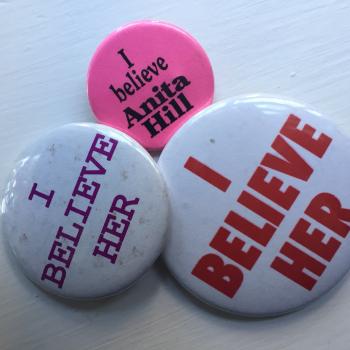
How do you think about yourself in relation to the natural world?
Even the language we use to answer the question belies important aspects of our worldview. Do you have a relationship with the earth or a relationship to the earth?
Those who primarily understand the natural world as something to relate to, are people who largely hold an anthropocentric, or human-centered, approach. The earth is an object that we relate to, but we are separate from it. In this worldview, nature is a resource over which we have dominion and its riches enable humans to live better lives.
Those who define their relationship as with the natural world recognize a certain intrinsic standing or value in nature. This attitude reflects an interdependence connecting humanity with the world in which we live rather than approaching the natural world as a resource for our consumption. This second approach is often described as an ecocentric approach.
Helping students understand and recognize how these radically different approaches to thinking about who we are in relation to the natural world is one the foundational aspects of my environmental ethics class.
Not surprisingly, since about 85% of my students are environmental studies majors or minors, my students tend to have a more ecocentric approach. They readily affirm the intrinsic value of nature over against an instrumentalist approach and they frequently talk about how, as animals ourselves, we are an interdependent part of creation.
And yet, for the most part, their environmental behaviors and habits are only marginally better than the rest of their peers or the larger US American public more generally.
The first three weeks of class I have them keep a journal where they record their food, waste, and energy use for one week each. Then they write a reflective essay where they talk about their habits and any insights they might have about their own environmental footprint.
All but two students were genuinely surprised by their own behavior.
But its not really that surprising. After all, we become acclimated to what is familiar and often forget to notice things that ought to shock us.
For many, the amount of packaging (and thus waste) associated with their food consumption was a surprise. For others, it was the amount of meat that they ate on a regular basis and their recognition of the high-impact meat production has on the environment.
As they reflected on their behavior, the students had two key insights that are relevant for all of us as we think about our relationship with the natural world.
First, many of them noted that even though they consider themselves environmentalists who are committed to “reduce, reuse, recycle,” convenience often trumped acting on their values. At one student summed it up:
In dealing with environmental issues, I do what is convenient, cheap, easy, and fast, which is not sustainable in the long run, but it is what I can afford and have time for at the moment.
Her honesty rings remarkably true for many of us as well.
Second, many of them rightly recognized that their individual behavior paled in comparison to the larger burden that institutions and society place on the environment. Another student explained it like this:
Another barrier we face is institutionalized policies and big businesses that are difficult to combat. We depend on inescapable structures, from the dining hall to government farming subsidies for industrial farming, that are inherently unethical and bad for the environment. These structures are hard to fight against. People do not want to think about where their food comes from. They do not want the answers. We societally chose to ignore climate change because the cultural and structural alterations we would need to make to combat it are so vast.
Again, this student hit the nail on the head. While it does matter that each of us individually reduce our own carbon footprint, individual efforts alone will not stop global warming. And the structural change that we need to make as a society really are quite vast.
This exercise highlights the challenge that we face as a global community. Doing the right thing often requires effort and many of us live lives that don’t really afford us the opportunity of doing much beyond what is “convenient, cheap, easy, and fast.”
My intention is not to berate us for being stuck in economic and cultural structures that impede our ability to live transformational lives.
My point is to prompt us to rightly identify the problem we face as a human community confronting the threat of climate change. The problem, at its core, is our worldview – how we orient ourselves toward the world around us.
We know what we need to do. Scientists have told us. Environmental advocates have told us. Philosophers and ethicists have told us. But the things that we need to do are not convenient, cheap, easy, or fast. The change that is required is a deep philosophical and spiritual reorientation of our relationship with the natural world.
Moving from an anthropocentric to an ecocentric understanding of our relationship with the natural world is the starting point for helping us rethink the structures of society.
Developing worldviews that recognize the value and wisdom of the earth and the natural world are essential for us to embrace the task of caring for the earth so that we stop thinking about that care as an inconvenience or as a burden. When we are able to care for the health of the planet as much as we care for the health of our families, then those tasks that were once thought burdensome become prayers. The inconvenient task is reframed as an act of joy and celebration.
When turning off lights, cooking our own food, buying in bulk, using cloth diapers, commuting by foot, bike or carpool and dozens more simple actions that make up our daily life are recognized as acts of stewardship and respect for life, we begin to resacralize lives that are drifting daily farther and farther away from our connection with the world around us.
Only when we recognize that the habits of our daily life have deeper spiritual meaning will we be able to recognize the sacred value of everything that we do.












